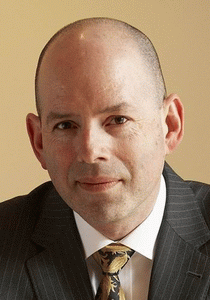
Find Experts & Sources
FAQ
Membership Form Be an Affiliate Powerful Tools Tell your story Media Directory
Media Releases
Sources Bookshelf
Sources Newsstand
Subscriptions Connexions Radical Digressions Sources HotLink Sources Select Resources Twitter Download PDFs Contact
Media Resources
Releases Subject Index Releases List Event Calendar Submit a news release or Calendar event Include yourself in SOURCESFAQ
Membership Form Be an Affiliate Powerful Tools Tell your story Media Directory
Media Releases
Sources Bookshelf
Sources Newsstand
Subscriptions Connexions Radical Digressions Sources HotLink Sources Select Resources Twitter Download PDFs Contact
Media Releases from members of Sources.
To submit a news release, use this form.
To submit a news release, use this form.

Social Media Cleansing: A Closer Look at our Profiles
June 29, 2011
Toronto, June 29, 2011 - Everybody knows Facebook, LinkedIn, Twitter, and YouTube. Devoted users talk about connecting with family, networking with past colleagues, and meeting new contacts. Social media sites allow this to happen, and much, much more.You can post photos, blogs, “status updates”, job history, family relationships, event listings, and just about anything you can imagine. “The more you post, the more “value” that you give your connections,” Says Randall Craig, social media and web strategist and author of the Online PR and Social Media series. “Family can see their pictures. Your professional connections can see your credentials. And recruiters, researchers, HR professionals, and your boss can see this too. The question is, do you want them to? And if the answer is yes, how do you mitigate the risk, and avoid embarrassment or finding yourself disqualified from an opportunity.”
Randall Craig has the following suggestions:
1. Put yourself in the audience’s shoes. If there is something that you would rather they not see, for whatever reason, then do something about it.
2. Think of your closest friend or a parent. Is there anything online that you would be embarrassed if this person saw, either in your postings, or others’ comments? If so, you will probably need to do something about it.
3. Is there something that a client or your manager – either current or former – might dispute as being not completely true? You probably should do something about this also.
To deal with these and other issues, Craig recommends trying these tips to mitigate the risks:
1. Use existing privacy controls to control what you expose and to whom. Most social media sites have decent privacy controls and they are often upgraded with little or no notice. That being said, each site’s terms and conditions also change with little or no notice. As well, many have now been changed to allow paid “search” access to your profile – even by people you do not know.
2. Only post accurate information, and avoiding exaggerations, omissions, or other white lies. You would not be inaccurate in your resume; doing so in a public forum is even more foolish.
3. Only post information, status updates, photos, notes, etc., that supports your personal brand.
4. Delete inappropriate or low-value posts from others that creep onto your social media profiles.
Look at your LinkedIn, Facebook, and other social media profiles through the eyes of a prospect, client, recruiter, supplier, or business partner. If there any red flags that may cause concern or signal risk, then follow the strategies above. Adds Craig: “You will want to expose enough of yourself to add value… but not so much that you risk disqualifying yourself from opportunities that others might bring to you.”
Since 1994, Randall Craig has advised on web and social media strategy. He is the author of six books including the Online PR and Social Media series. More information about Randall Craig can be found at www.randallcraig.com.
-30-
For more information contact:
Randall Craig
416.256.7773 x101 / Randall@ptadvisors.com
Carolyn Bergshoeff
416.256.7773 x 101 / Carolyn@ptadvisors.com
For more information contact:
Randall Craig
President
Pinetree Advisors
Phone: 416-256-7773 x101
Email: randall@ptadvisors.com
Website: www.RandallCraig.com
Click here to view our Sources Listing:
Randall Craig, Social Media and Networking Expert
Topics:
- Blogs/Blogging
- Business/Management Education
- Business Networking
- Career Planning
- Electronic Commerce/Business (E-Commerce/E-Business)
- Employee Engagement
- Employee Retention
- Entrepreneurs/Entrepreneurship
- Executive Coaching
- Human Resources Management Workshops & Seminars
- Internet
- Internet Consulting
- Internet/Lawyers
- Internet/Marketing
- Internet/Media
- Internet Risks
- Internet Strategy
- Knowledge Management
- Law Firm Consultants
- Legal Sector Consulting
- Management Consultants
- Management Training & Development
- Management Trends
- Management Workshops
- Marketing Communications
- Marketing Consultants
- Marketing/Internet
- Marketing/Professional Services
- Motivational Seminars
- Relationship Marketing
- Résumés
- Search Engine Optimization (SEO)
- Seminars & Workshops
- Social Media
- Social Networks/Social Networking
- Speaking/Professional
- Student Jobs/Work
- Training & Development
- Wellness at Work
Find Experts & Sources
| Information and Media Resources from Sources | |||||||||
| Main News Release page | Media releases from clients of the Sources media relations service. | ||||||||
| Sources Calendar | Check out newsworthy events from across Canada. | ||||||||
| Sources Directory | Search the Sources directory of experts, contacts and media spokespersons. Find how to include yourself in Sources. | ||||||||
| Publish your news releases | Sources can help you distribute your media releases | ||||||||
| Media Names & Numbers | Directory of Canada's print and broadcast media. | ||||||||
| Parliamentary Names & Numbers | Full contact information for government, political parties, lobbyists, and embassies. | ||||||||
